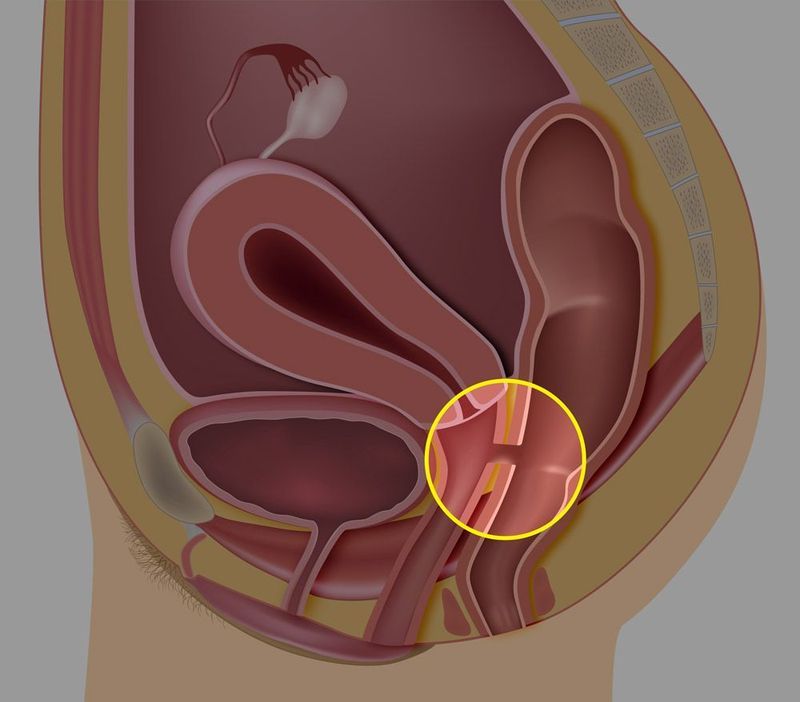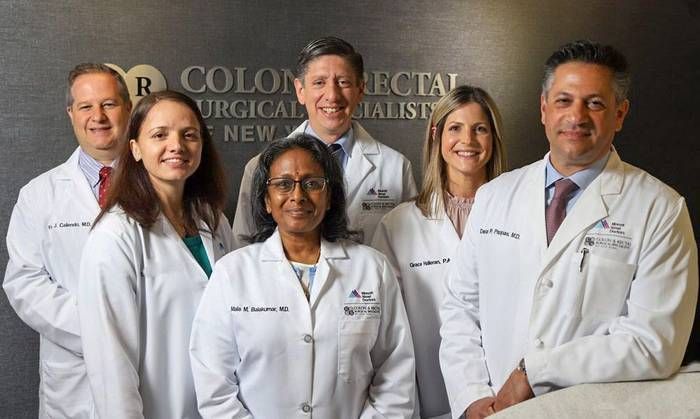What Is a Rectovaginal Fistula?
Whether a result of childbirth, disease, or complications following surgery, some women develop an abnormal connection between their large intestine and vagina. Known as a rectovaginal fistula, this damage can result in bowel contents leaking into the vagina and leaving you vulnerable to infection. Our doctors in Nesconset, NY, can diagnose and provide treatment for this condition.
Understanding the Basics
A fistula is any opening between normally separated areas in the body. In the case of a rectovaginal fistula, this opening can result in gas or stool leaking into the vagina, repeated vaginal or urinary tract infections, and pain during sex.

This condition can result from:
- Childbirth-related injury
- Crohn’s disease
- Inflammatory bowel disease
- Cancer and radiation treatment
- Traumatic injury
- Infections
- Surgery affecting the vagina, perineum, or anus
- Diverticulitis
Because an especially difficult, long, or obstructed labor can severely damage tissue, injuries during childbirth are the most common cause of rectovaginal fistulas.
Recognizing Symptoms
The size and location of the fistula will determine what types of symptoms you see. Some patients notice stool or gas passing from the vagina, which can lead to recurrent vaginal or urinary tract infections. Some women experience pain or irritation in the vulva, vagina, or perineum. Others report pain while having sex.
If you experience any of these symptoms, you should reach out to our Nesconset office. Although it can be a sensitive or embarrassing subject, our doctors are trained to diagnose and treat this condition with discretion and compassion. A fistula may be the first warning of more serious problems, including infection, abscess, or cancer.
We understand that dealing with a rectovaginal fistula can leave you feeling miserable and will treat you with dignity and compassion throughout your treatment.
Available Treatments
One of our highly skilled doctors in New York City will perform a physical exam to determine the location of the fistula. This typically involves inspecting your vagina, anus, and perineum with a gloved hand. In some cases, they may need to perform a biopsy to verify the diagnosis. If you do have a rectovaginal fistula, a customized treatment plan will be developed to address the condition.
Medications
If the fistula is infected, you may be prescribed antibiotics. For those who struggle with Crohn’s disease, medications such as Infliximab can ease inflammation and allow the fistula to begin healing.
Surgery
In many cases, surgery is needed to repair a fistula. However, because fistulas can sometimes close on their own, our doctors may recommend waiting three to six months before you commit.
If surgery is determined to be the best option for treatment, the procedure may combine a number of techniques, including:
- Suturing an anal fistula plug to allow natural tissue to grow over the fistula
- Applying a tissue graft over the fistula
- Repairing damaged sphincter muscles in the anus
In some cases, a patient may need a colostomy in preparation for fistula repair, as well.
Home Remedies
Some women are able to minimize their symptoms with simple lifestyle choices such as:
- Gently washing the outer genital area with water following the vaginal discharge of stool
- Avoiding soaps that irritate the skin
- Using pre-moistened toilet paper
- Applying moisture-barrier creams to protect skin from stool leaks
- Wearing cotton underwear
However, it’s important to keep in mind that home remedies are not an alternative to medication or surgery. These lifestyle changes are usually recommended to keep you comfortable and reduce your risk of infection while waiting for repair.
Contact Our Office Today
We understand that dealing with a rectovaginal fistual can leave you feeling miserable and will treat you with dignity and compassion throughout your treatment. To schedule a consultation and speak with a professional who can help, contact our office online or call us at (516) 844-0248.

